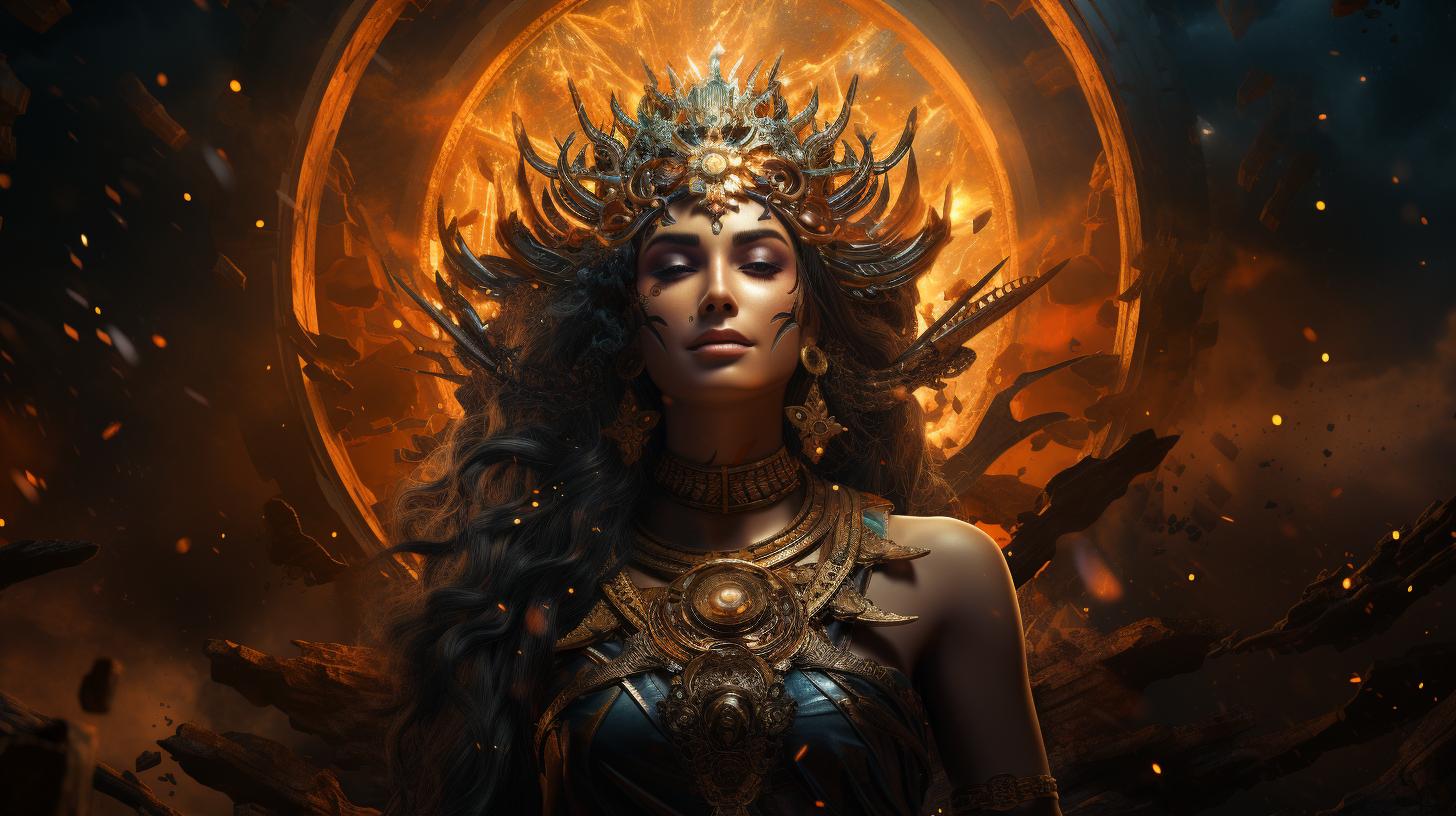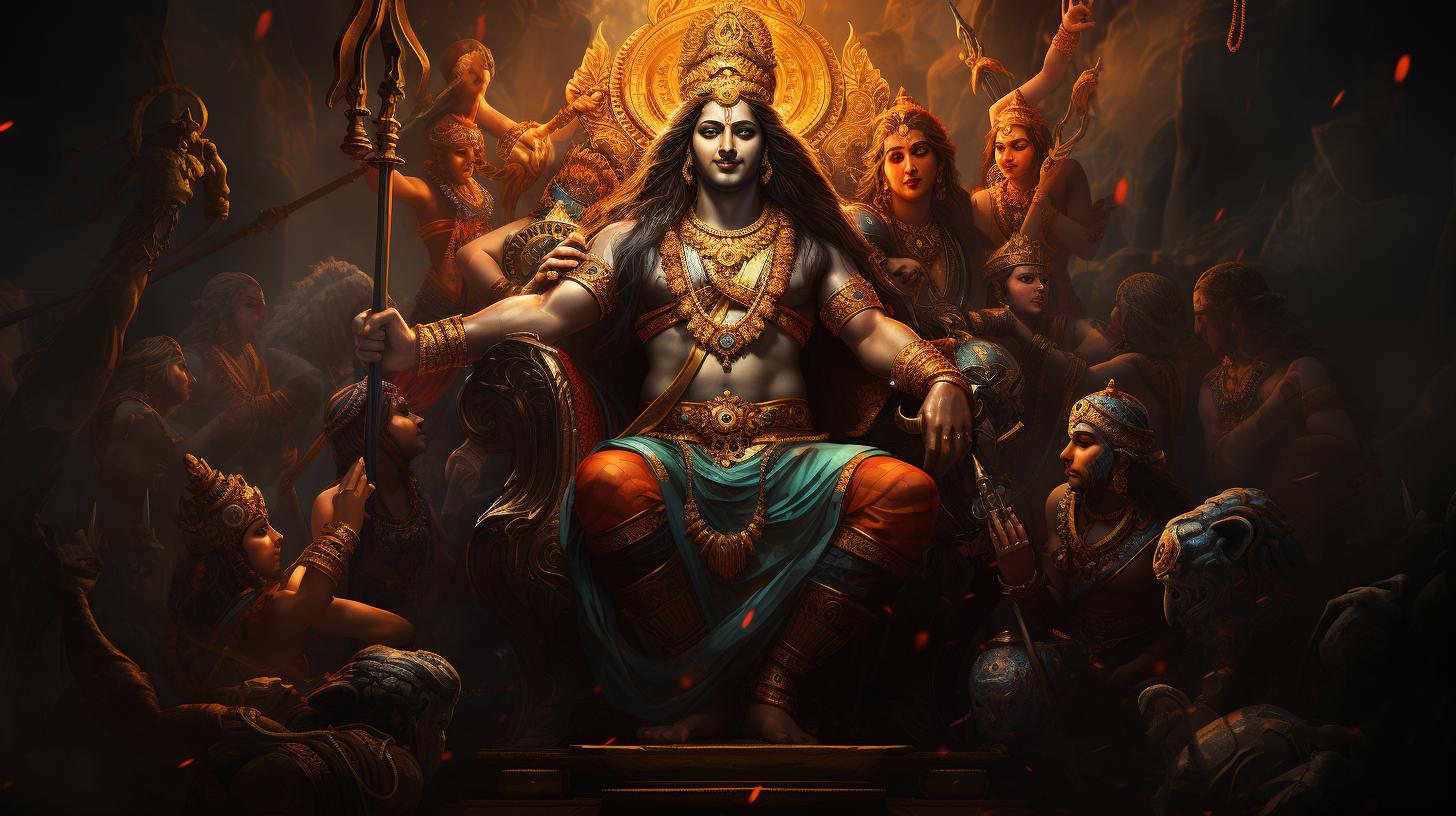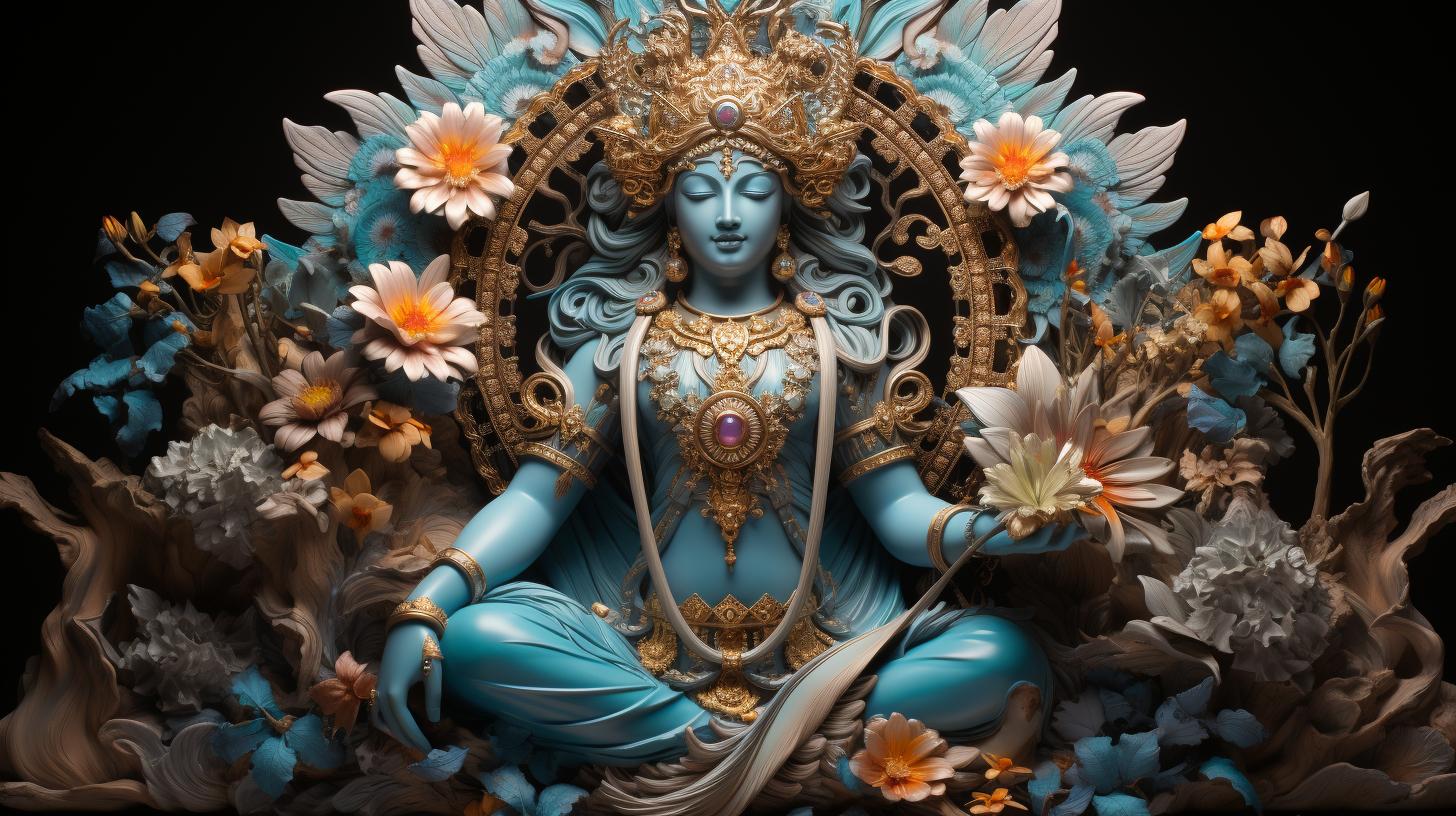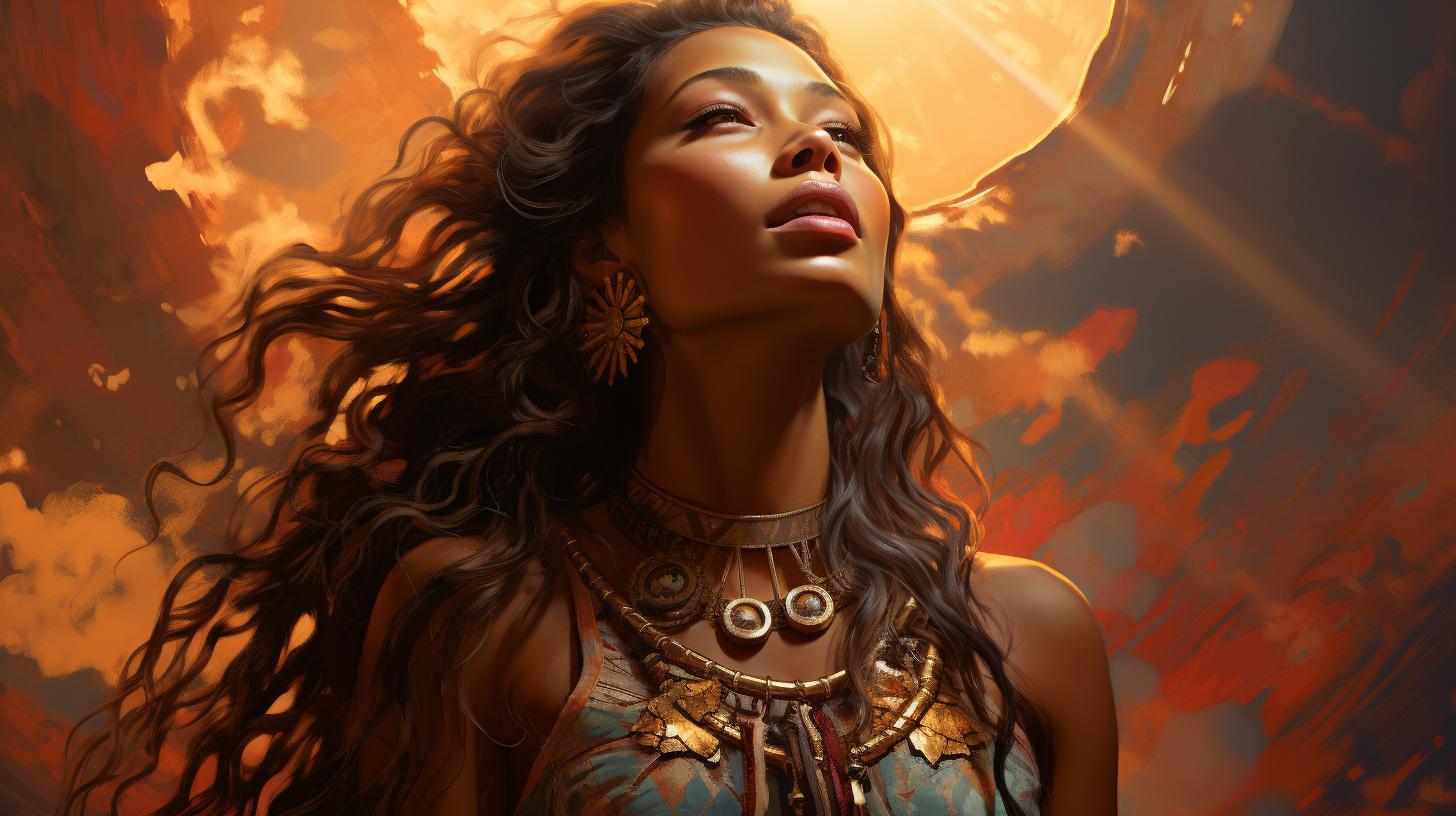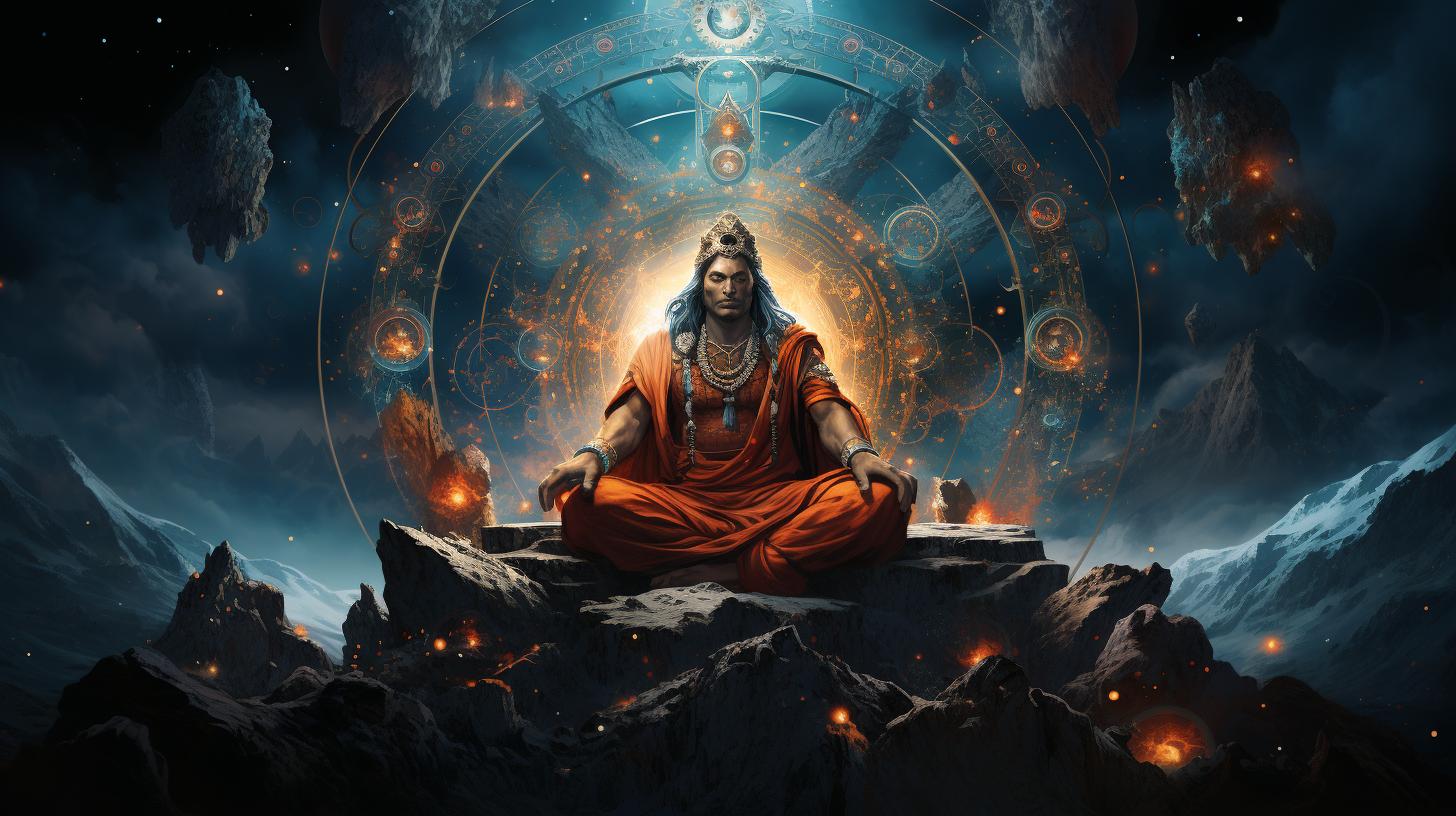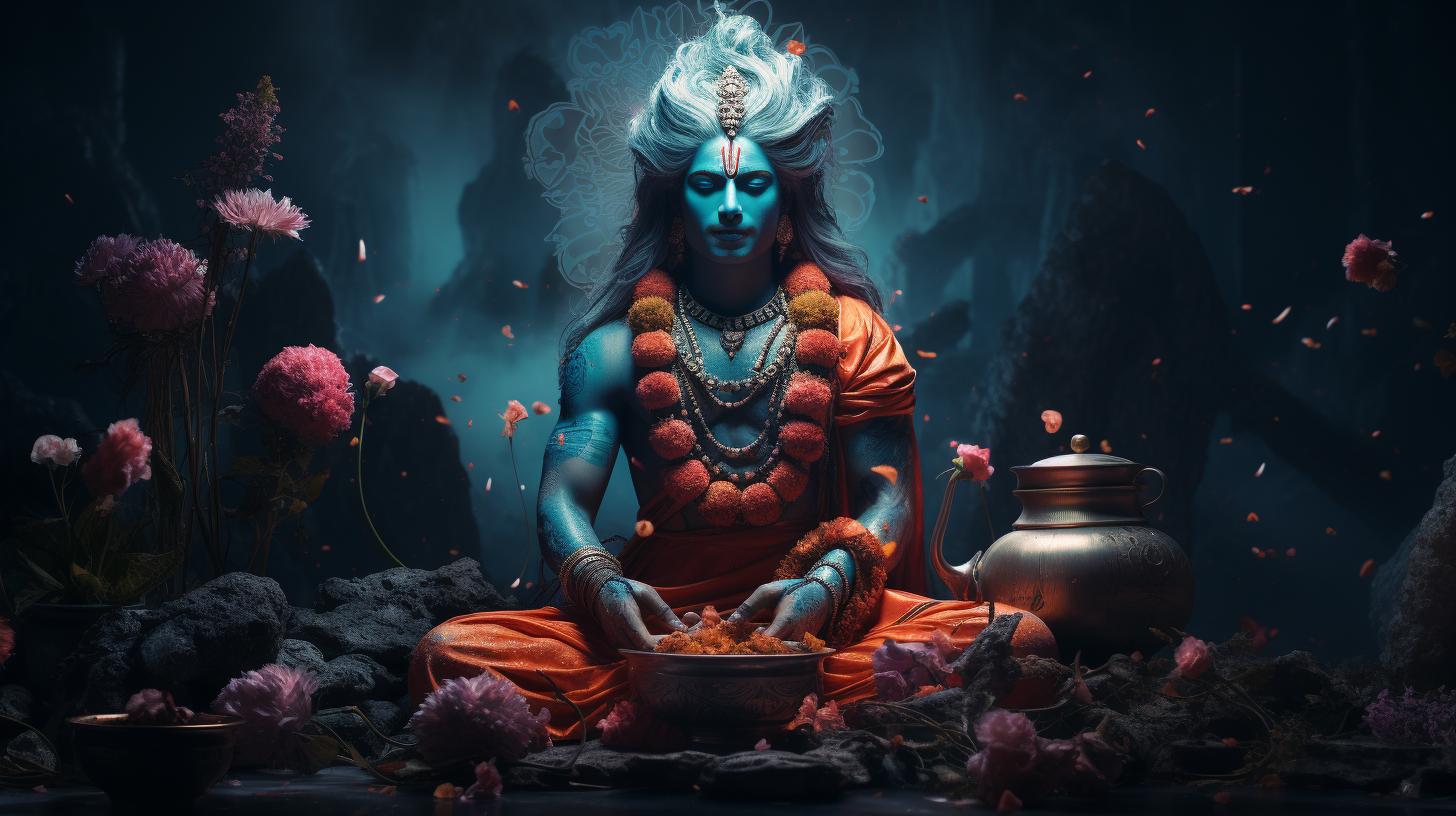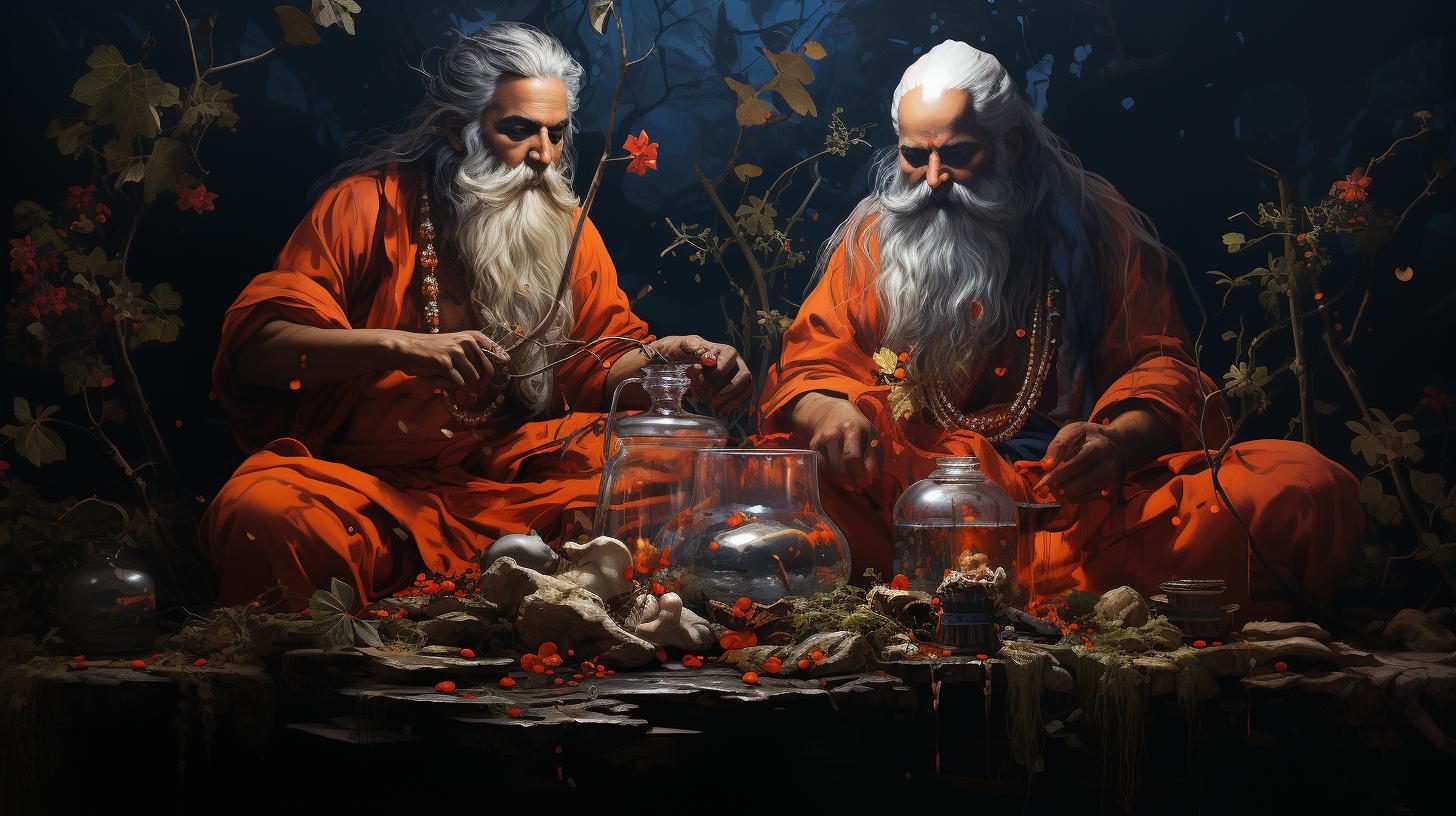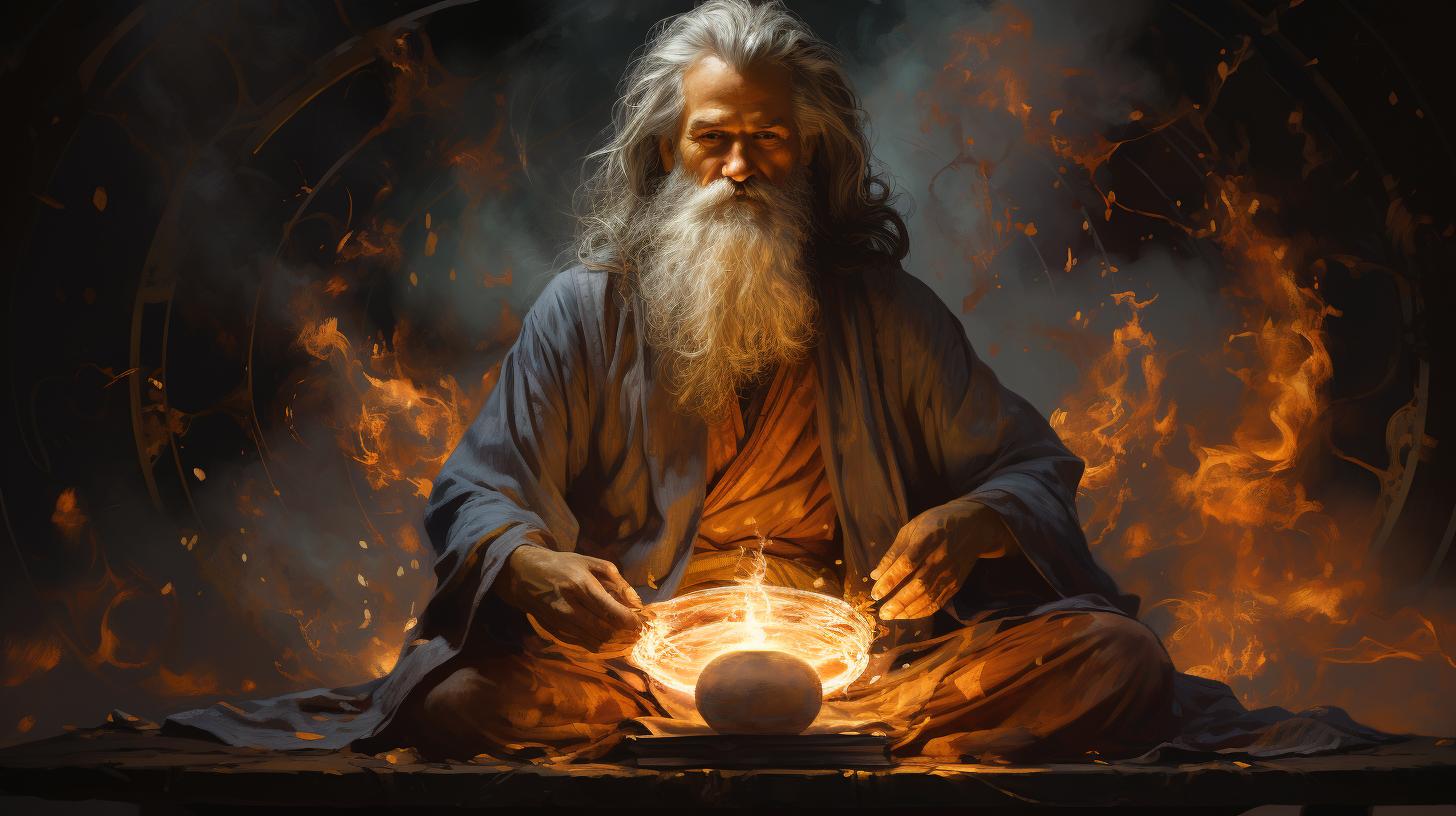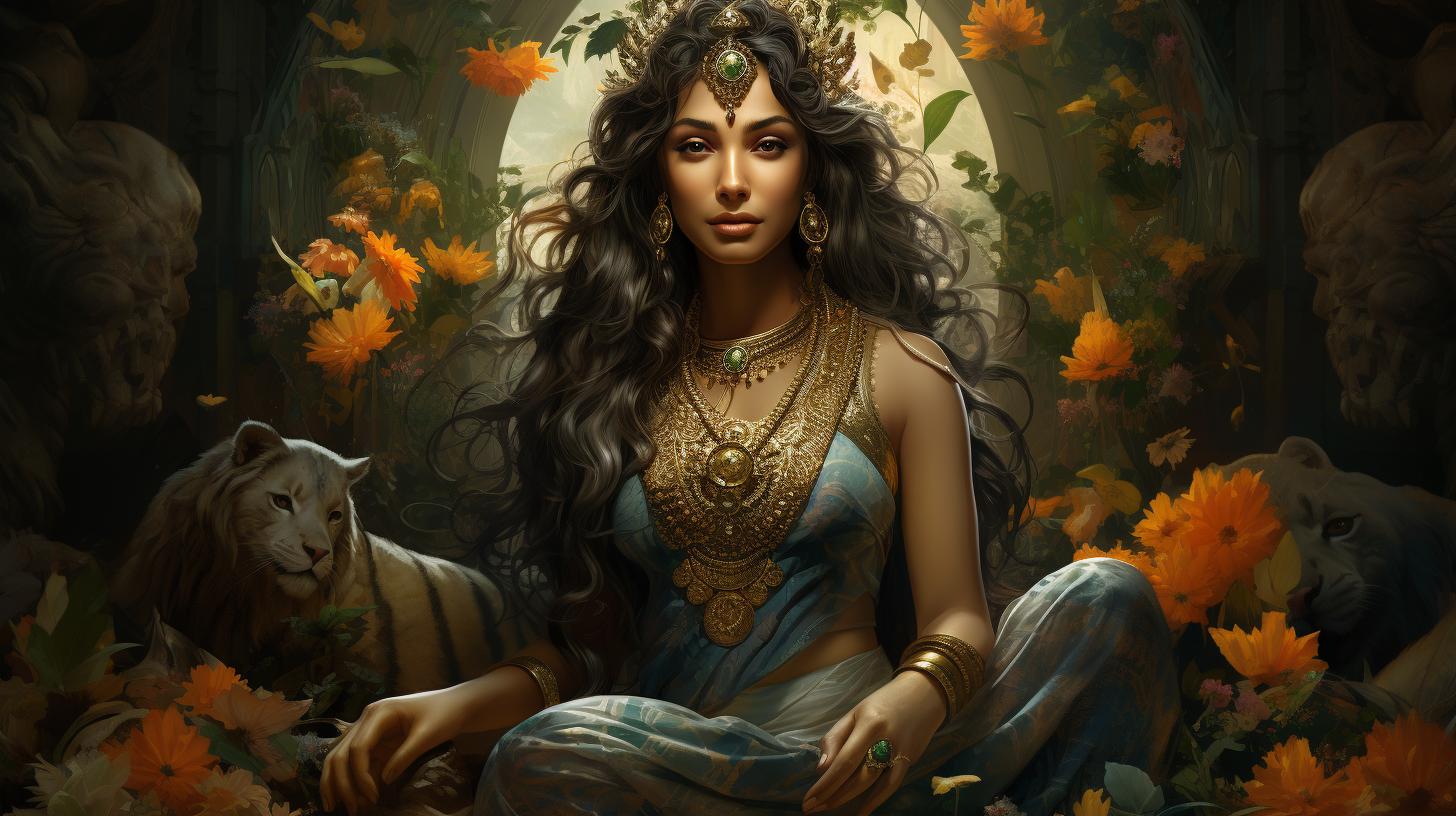Who is Aryaman God: Unveiling the Mysteries of this Hindu Deity
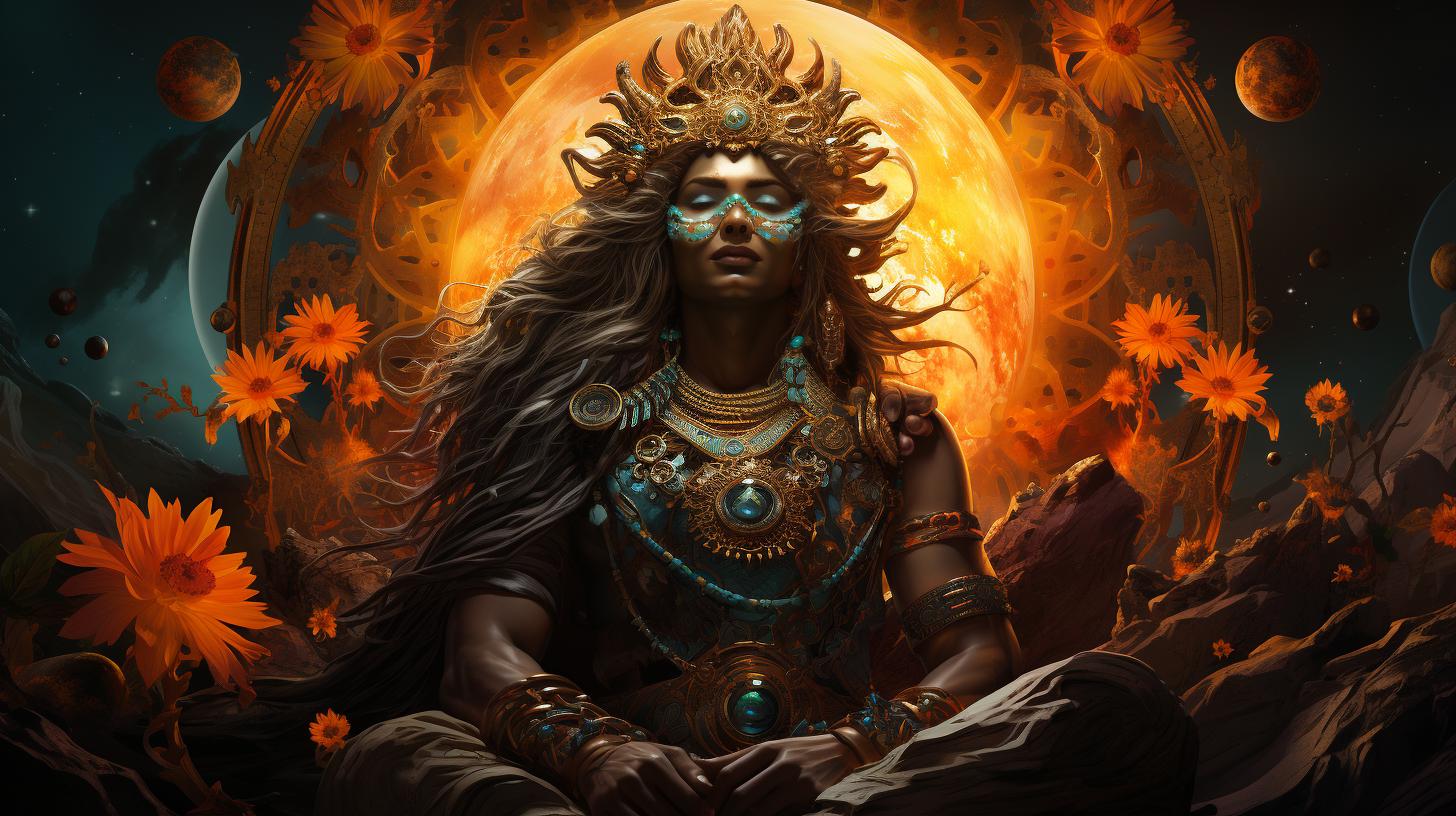
Aryaman, a prominent deity in Hindu mythology, holds significant symbolism and characteristics. Mentioned in the Rig Veda, Aryaman is associated with honor, nobility, and cosmic consciousness. As a friend and companion, Aryaman embodies the expression of knowledge and the laws of the cosmos.
Additionally, Aryaman’s connection with Vedic astrology and yoga practices highlights their role in astral influences and meditation. Rituals, festivals, and devotion celebrate Aryaman’s influence, while their historical and cultural significance is observed in early Vedic tribes and Sanskrit literature.
Aryaman’s relevance persists in modern Hindu belief systems and philosophy.
Understanding the Significance of Aryaman in Hindu Mythology
Aryaman holds immense importance in Hindu mythology, embodying various virtues and symbolic elements. This section delves into the depths of Aryaman’s significance, exploring their mention in the Rig Veda and their role among the Adityas and other deities.
The Rig Veda and Aryaman’s Mention
The Rig Veda, one of the oldest sacred texts in Hinduism, contains references to Aryaman. The hymns in this ancient scripture mention Aryaman, reflecting their divinity and the reverence people held for them.
These mentions shed light on the unique characteristics and qualities associated with Aryaman.
Role of Aryaman among the Adityas and Deities
Aryaman’s position among the Adityas and other deities is noteworthy. They are regarded as an important celestial entity, associated with cosmic consciousness and noble traits. Aryaman’s divine nature intertwines with the fabric of Hindu mythology, positioning them as a revered figure and exemplifying their significance in the pantheon.
Exploring Aryaman’s Characteristics and Symbolism
Aryaman, a prominent deity in Hindu mythology, holds deep significance and embodies various characteristics and symbolism. Let’s delve into Aryaman’s role as a friend and companion, their association with honor and nobility, and the representation of cosmic laws and knowledge.
Aryaman as the Friend and Companion
Aryaman is revered as a loyal and steadfast friend, serving as a supportive companion in Hindu mythology. Just as a true friend stands by our side through thick and thin, Aryaman exemplifies unwavering friendship and companionship.
Aryaman’s Association with Honor and Nobility
Known for their association with honor and nobility, Aryaman embodies the virtuous qualities that are admired in Hindu culture. They represent the highest ideals of righteousness, dignity, and integrity, showcasing a moral compass that inspires individuals to uphold these values in their own lives.
The Cosmic Laws and Knowledge Represented by Aryaman
Aryaman is also recognized as a manifestation of cosmic laws and profound knowledge. They symbolize the universal principles that govern the functioning of the universe, both at a cosmic level and within human consciousness.
Through their embodiment, Aryaman encourages individuals to seek wisdom, broaden their understanding, and harmonize with the cosmic order.
By exploring Aryaman’s characteristics and symbolism, we gain a deeper appreciation for their significance in Hindu mythology and the broader philosophical concepts they represent.
Through their role as a friend and companion, association with honor and nobility, and representation of cosmic laws and knowledge, Aryaman inspires us to cultivate noble virtues and embrace the interconnectedness of existence.
Aryaman in Vedic Astrology and Yoga Practices
Aryaman, a revered deity in Hindu mythology, holds significant connections with Vedic astrology and the practice of yoga. Understanding Aryaman’s association with these domains allows seekers to deepen their spiritual journeys and tap into celestial influences.
Aryaman’s Connection with Astrology and Astral Influences
Aryaman’s significance in Vedic astrology lies in their influence on various aspects of human life. As an Aditya, Aryaman guides the cosmic energies and impacts individual destinies. Astrologers analyze Aryaman’s alignment to provide insights into personality traits, relationships, and life events.
Understanding one’s astrological chart with Aryaman’s influence aids individuals in making informed decisions and navigating their paths.
Harnessing Aryaman’s Energy in Yoga and Meditation
In the practice of yoga and meditation, Aryaman’s energy serves as a spiritual guide. By invoking Aryaman, practitioners can harness their noble and honorable qualities within themselves. This enables one to cultivate compassion, kindness, and a sense of cosmic consciousness.
Through mantra recitation, visualization, and deep introspection, individuals can establish a profound connection with Aryaman, elevating their yoga and meditation practices.
By embracing Aryaman’s presence in Vedic astrology and integrating their energy into yoga and meditation, individuals can deepen their spiritual understanding and cultivate a harmonious connection with the divine.
Rituals, Festivals, and Devotion Related to Aryaman
Aryaman, an important deity in Hindu mythology, is celebrated through various rituals, festivals, and acts of devotion. These practices offer devotees an opportunity to connect with Aryaman’s divine essence and seek blessings for their lives.
Celebrating Aryaman in Hindu Customs and Festivals
- Holika Dahan: This festival symbolizes the victory of good over evil and is celebrated with bonfires where people gather to pray to Aryaman for blessings and protection.
- Bihu: Observed in Assam, Bihu is a harvest festival where people perform traditional dances and songs as a way to express their gratitude to Aryaman for a bountiful harvest.
- Pongal: Celebrated predominantly in South India, Pongal is a four-day harvest festival that includes the worship of Aryaman for his blessings on agricultural abundance.
- Narali Purnima: This coastal festival is dedicated to Aryaman as the guardian deity of the sea.
Devotees worship him to seek his protection for fishermen and their successful voyages.
Devotional Practices and Offerings to Aryaman
Devotees express their love and devotion towards Aryaman through various practices and offerings, aiming to establish a spiritual connection and seek divine blessings. Some of these practices include:
- Prayers and Mantras: Devotees recite specific prayers and mantras dedicated to Aryaman to invoke his presence and seek his guidance in their lives.
- Offerings at Temples: People visit temples dedicated to Aryaman to make offerings like flowers, incense, fruits, and sweets as a gesture of respect and devotion.
- Vrat (Fasting): Some followers observe fasting on specific days associated with Aryaman, abstaining from certain foods as a form of discipline and devotion.
- Charity: Devotees may engage in acts of charity and kindness, believing that such actions please Aryaman and bring blessings to their lives.
By actively participating in these rituals, festivals, and devotional practices, devotees strengthen their connection with Aryaman, fostering a sense of spirituality, inner peace, and divine guidance in their lives.
Aryaman in Historical and Cultural Context
Aryaman holds a significant role in the historical and cultural context of ancient Vedic tribes and society. Understanding Aryaman’s place in early civilization sheds light on the reverence and importance attributed to this deity.
Aryaman’s Role in Early Vedic Tribes and Society
Aryaman was revered as one of the prominent deities among the early Vedic tribes. As a divine embodiment of honor and nobility, Aryaman’s presence influenced the social structure and moral values of ancient societies.
The Vedic texts portray a society that upheld the ideals represented by Aryaman, emphasizing the importance of chivalry, righteousness, and adherence to cosmic laws.
These tribes looked up to Aryaman as a guiding force, one who inspired virtuous conduct and contributed to the overall well-being of the community.
With their association with friendship and companionship, Aryaman played a vital role in fostering harmonious relationships among individuals within the society.
Influence of Aryaman in Sanskrit Literature and Art
The influence of Aryaman extended beyond the societal realm and found expression in Sanskrit literature and art. In sacred texts, including the Rig Veda, Aryaman is honored through hymns and prayers, reflecting the cultural recognition of their divinity.
These compositions describe Aryaman’s attributes, invoking their noble qualities and acknowledging their role in maintaining balance and cosmic order.
Furthermore, Sanskrit literature showcases the impact of Aryaman’s ideals on moral narratives, exemplifying the virtues they embody.
Through tales of heroism, righteousness, and the pursuit of truth, Aryaman’s essence permeates throughout these literary works, leaving a lasting imprint on the cultural fabric of the time.
Artistic representations also depict Aryaman in various forms, capturing their divine presence and symbolism.
Sculptures, paintings, and other artistic expressions depict Aryaman as a figure exuding grace, valor, and wisdom.
- Aryaman’s revered position in Vedic society
- Association with honor, nobility, and cosmic laws
- Influence on moral narratives in Sanskrit literature
- Depictions in art portraying their divine attributes
Exploring the Influence of Aryaman in Modern Hinduism
The significance of Aryaman in Hindu mythology extends beyond ancient texts and rituals.
In contemporary times, there are new understandings and interpretations of Aryaman that contribute to the ever-evolving landscape of Hindu philosophy and belief systems.
Contemporary Understandings and Interpretations of Aryaman
In modern Hinduism, Aryaman is often seen as a guiding force towards righteousness and ethical living. They are perceived as representing the moral compass within individuals, urging them to uphold principles of honor, kindness, and compassion in their daily lives.
Contemporary interpretations of Aryaman highlight their role as a spiritual teacher, encouraging seekers to follow the path of self-discovery and self-realization. These interpretations emphasize the importance of aligning one’s actions with higher virtues and cultivating a sense of responsibility towards oneself and others.
Aryaman’s Relevance in Hindu Philosophy and Belief Systems
Aryaman’s relevance in Hindu philosophy can be observed through their association with dharma, the universal cosmic order. Hinduism teaches that by embracing the principles and ideals represented by Aryaman, individuals can harmonize with the natural laws of the universe and lead a balanced and fulfilling life.
In Hindu belief systems, Aryaman’s presence is often invoked during religious rituals and ceremonies. Devotees seek their blessings to cultivate noble qualities and to overcome inner obstacles on their spiritual journey.
Aryaman’s influence is particularly pronounced in practices such as yoga, where individuals aim to attain union with the divine.
Moreover, Aryaman’s teachings and symbolism resonate in the Bhakti tradition, emphasizing devotion and love towards deities.
Devotees recognize Aryaman as an integral part of their spiritual journey, seeking their guidance to deepen their connection with the divine.
- Emphasizing moral values
- Encouraging self-discovery and self-realization
- Aligning actions with higher virtues
- Cultivating a sense of responsibility towards oneself and others
- Harmonizing with the natural laws of the universe
- Leading a balanced and fulfilling life
- Invoking Aryaman’s presence in religious rituals and ceremonies
- Cultivating noble qualities and overcoming inner obstacles
- Aryaman’s influence in yoga and the pursuit of union with the divine
- Aryaman’s role in the Bhakti tradition and devotion towards deities
In conclusion, exploring the influence of Aryaman in modern Hinduism unveils how their teachings and symbolism continue to shape the philosophical and spiritual landscape.
Contemporary interpretations highlight the importance of aligning one’s actions with higher virtues and cultivating a sense of responsibility, while their relevance in Hindu belief systems is evident in rituals, yoga practices, and devotion.
Aryaman serves as a guiding force, urging individuals to embrace righteousness and harmonize with the cosmic order of the universe.
.

